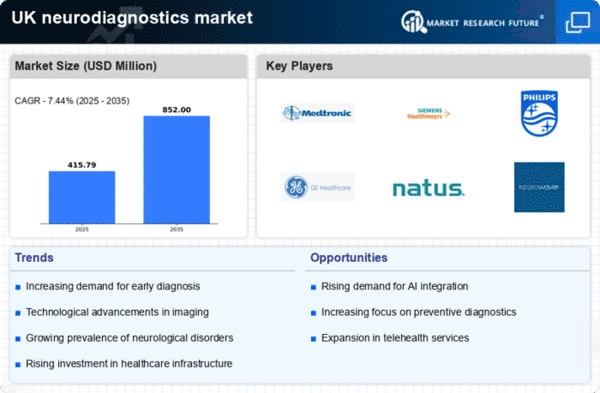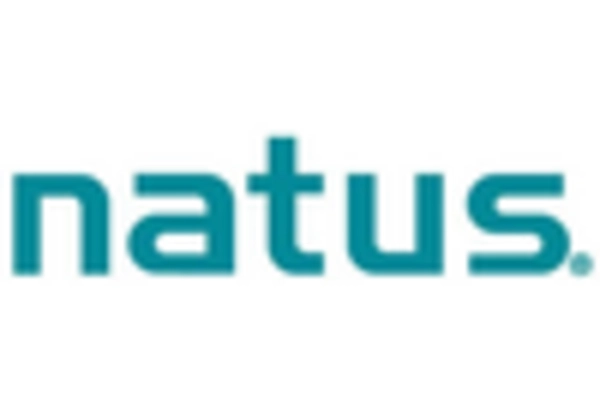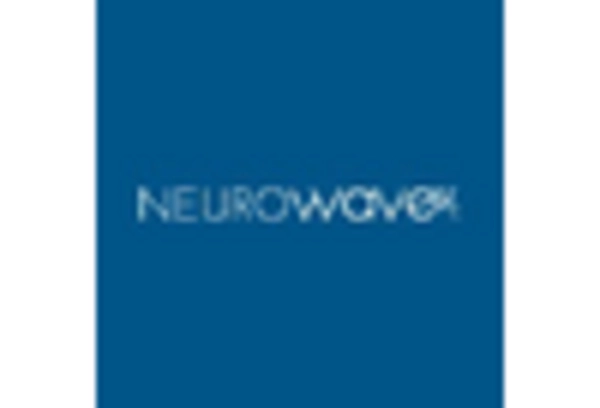Technological Integration in Healthcare
The integration of advanced technologies into healthcare systems is significantly influencing the neurodiagnostics market. Innovations such as artificial intelligence (AI), machine learning, and telemedicine are enhancing diagnostic accuracy and efficiency. For instance, AI algorithms can analyze neuroimaging data with remarkable precision, potentially reducing diagnostic errors. The UK government has been investing in digital health initiatives, which may further accelerate the adoption of these technologies in neurodiagnostics. As healthcare providers increasingly embrace these advancements, the neurodiagnostics market is likely to witness substantial growth, driven by the demand for more sophisticated diagnostic tools.
Growing Awareness of Neurological Health
There is a notable increase in public awareness regarding neurological health issues in the UK, which is positively impacting the neurodiagnostics market. Campaigns aimed at educating the public about the signs and symptoms of neurological disorders are encouraging individuals to seek early diagnosis and treatment. This heightened awareness is likely to lead to an increase in diagnostic testing and consultations with healthcare professionals. As more people recognize the importance of addressing neurological health, the demand for neurodiagnostic services is expected to rise, thereby driving market growth. The neurodiagnostics market stands to gain from this trend as healthcare systems adapt to meet the needs of an informed public.
Rising Prevalence of Neurological Disorders
The increasing incidence of neurological disorders in the UK is a primary driver for the neurodiagnostics market. Conditions such as epilepsy, multiple sclerosis, and Alzheimer's disease are becoming more prevalent, necessitating advanced diagnostic tools. According to recent data, approximately 1 in 6 people in the UK are affected by neurological conditions, which translates to millions requiring effective diagnosis and management. This growing patient population is likely to stimulate demand for neurodiagnostic devices and services, thereby propelling market growth. The neurodiagnostics market is expected to expand as healthcare providers seek innovative solutions to address these challenges, ensuring timely and accurate diagnoses.
Regulatory Support for Innovative Diagnostics
Regulatory bodies in the UK are increasingly supportive of innovative diagnostic solutions, which is fostering growth in the neurodiagnostics market. Streamlined approval processes for new technologies and devices are encouraging manufacturers to bring their products to market more quickly. The Medicines and Healthcare products Regulatory Agency (MHRA) has been working to ensure that new neurodiagnostic tools meet safety and efficacy standards while facilitating innovation. This supportive regulatory environment is likely to attract investment and encourage the development of novel diagnostic solutions. As a result, the neurodiagnostics market may experience accelerated growth as new products become available to healthcare providers.
Increased Investment in Research and Development
Investment in research and development (R&D) within the neurodiagnostics market is on the rise, driven by both public and private sectors in the UK. This influx of funding is aimed at developing novel diagnostic tools and improving existing technologies. The UK government has allocated significant resources to neuroscience research, which may lead to breakthroughs in neurodiagnostic methods. Furthermore, collaborations between academic institutions and industry players are fostering innovation. As R&D efforts continue to expand, the neurodiagnostics market is expected to benefit from the introduction of cutting-edge technologies and methodologies, enhancing diagnostic capabilities.
















